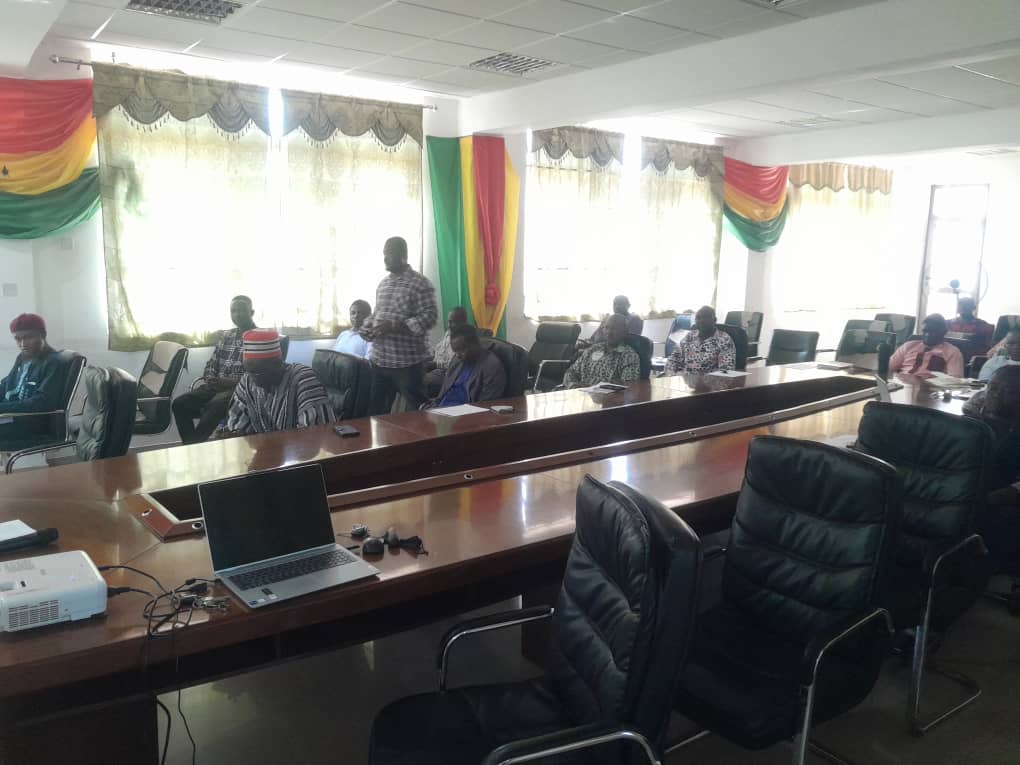In a world defined by rapid technological change, data has become both a mirror reflecting current realities and a map guiding the journey toward responsive governance, the Upper East Regional Minister said Thursday, November 20, 2025, at the commemoration of African Statistics Day.
Donatus Akamugri Atanga delivered the keynote address at the regional launch of the Ghana Statistical Service’s Governance Series Wave 2 Report, emphasizing that governance challenges such as unemployment, insecurity, climate vulnerability, and weak institutional trust cannot be addressed through “guesswork or assumptions.”
“Data is both a mirror and a map. A mirror reflecting the realities we live in and a map guiding our collective journey towards responsive, accountable governance as Africans,” Mr. Atanga told the gathering of statisticians, policymakers, traditional rulers, and civil society representatives.
The minister said the Wave 2 findings provide crucial evidence for understanding citizens’ living realities and measuring trust in public institutions.
The report showed that 14.3 percent of Ghanaians gave gifts or money to public officials between January and June 2025, down from 18.4 percent in the previous period. However, among those who paid bribes, repeat giving increased significantly.
Mr. Atanga described the findings as concerning, noting that institutional corruption and low public trust undermine governance systems. He urged stakeholders to study the findings carefully and integrate the evidence into institutional reforms aligned with the government’s agenda.
“I encourage all stakeholders to study the findings carefully and integrate the evidence into institutional reforms,” he said.
The minister called for strengthened collaboration between statisticians, policymakers, traditional rulers, academia, and civil society organizations. He emphasized the need to invest in data literacy, digital infrastructure, and local-level statistical capacities.
“Most importantly, we must ensure that data is not just collected but used to guide decisions to the benefit of the ordinary Ghanaian,” Mr. Atanga said.
Upper East Regional Statistician Bawa Abdul-Kadir told attendees that African Statistics Day, commemorated annually on November 18, was established to raise awareness of the importance of statistics in Africa’s social and economic development.
He noted that each year, the Ghana Statistical Service organizes panel discussions in collaboration with ministries, academia and civil society, with themes changing based on current priorities. Last year’s theme focused on supporting education through modernized statistics, while this year’s continental theme emphasized leveraging innovation in data and statistics.
The report found that the share of Ghanaians who believe the political system allows ordinary people to have a say rose from 54.8 percent to 68.4 percent, though significant regional disparities remain.
Mr. Atanga concluded his address by congratulating the Ghana Statistical Service for its leadership in introducing the Governance Series, describing it as an important advancement in monitoring citizens’ experiences and perceptions over time.
“The future of Ghana depends on our ability to turn data into development,” he said.
The event brought together representatives from government, civil society, development partners, and the media to discuss how statistical insights can inform policy formulation, resource allocation, and program implementation across the country.
Source: a1radioonline.com|101.1Mhz|Mark Kwasi Ahumah Smith|Bolgatanga


